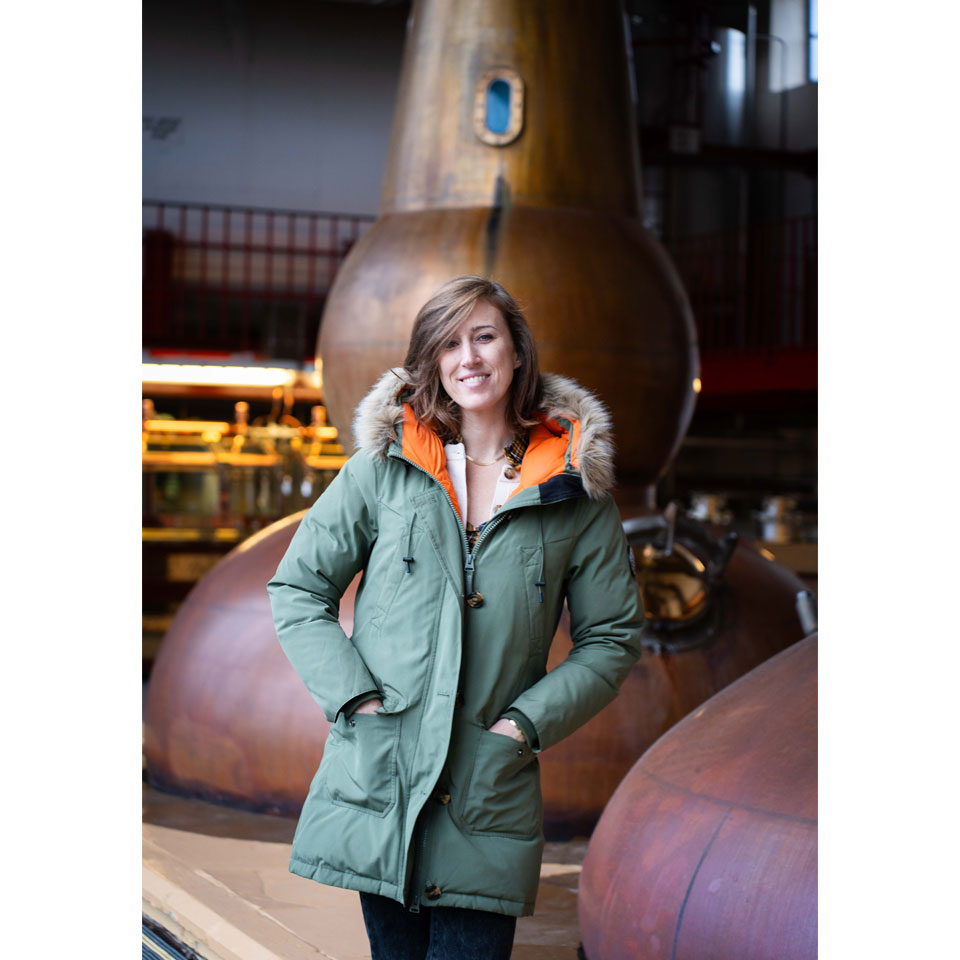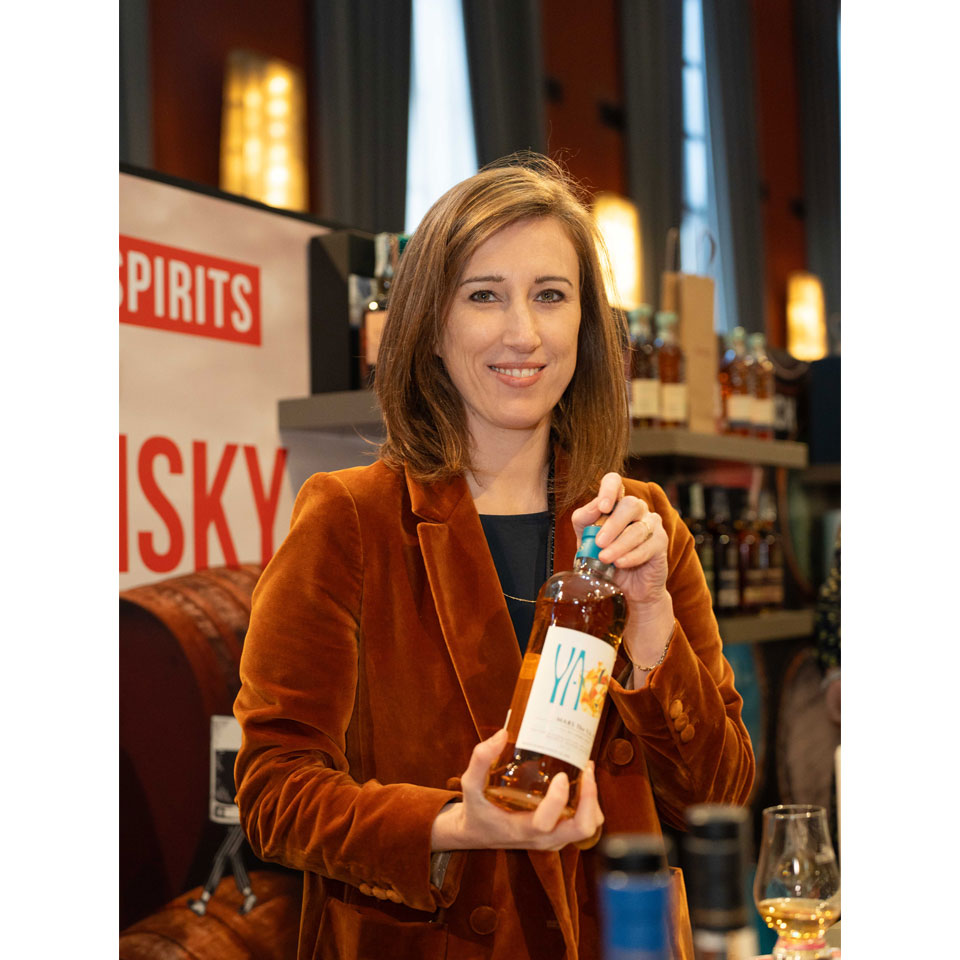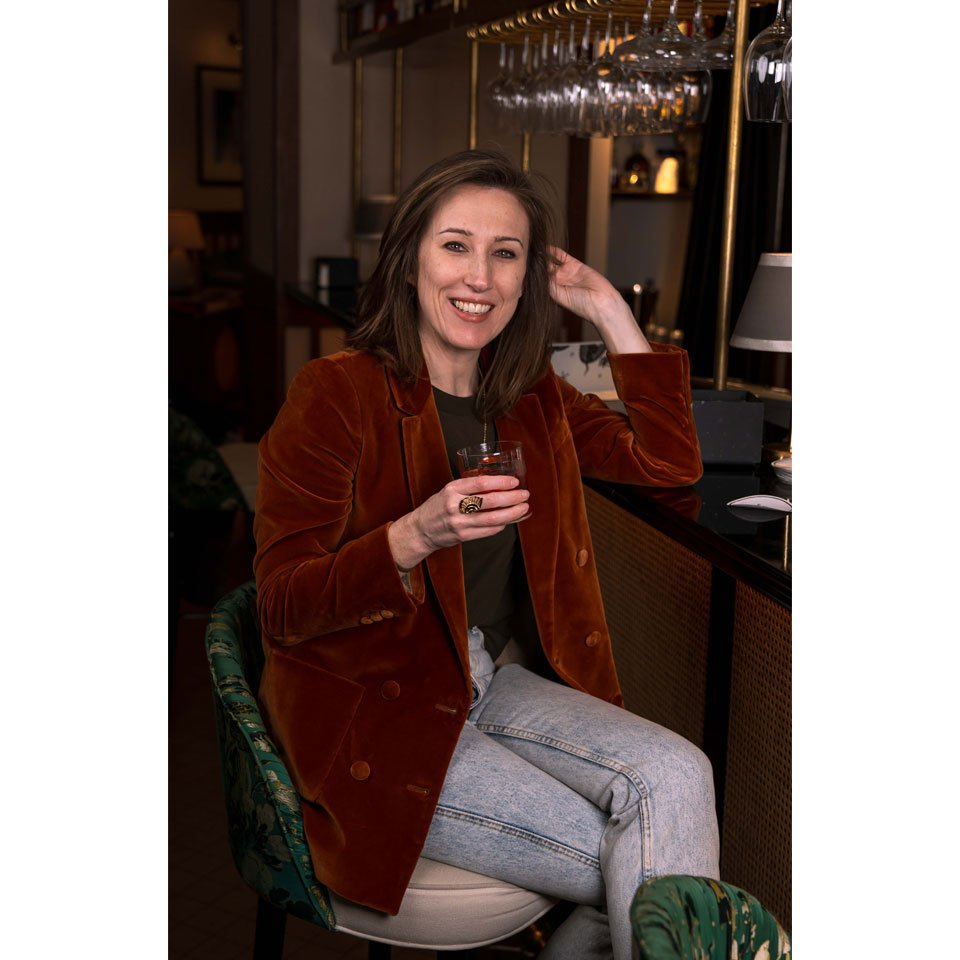Those who have worked in the bar industry for many years place her behind the counter at the Rita Cocktail Bar in Milan; younger people know her as a brand ambassador for Fine Spirits.
In any case, she has been one of the best known names in Italian mixing for many years now. We are talking about Chiara Beretta, who reviews venues on her socials out of passion, the same passion that pushed her many years ago to take a path she did not foresee and that she took at a time when very few women were seen behind the counter.
So we asked her to tell us about the evolution of her career path, from the moment she became aware that mixing would not be a job to round up but a long and complex road of acquiring skills to when she made the leap from the counter to training.
We won't anticipate more, we'll leave you with her experience.

Hi Chiara, would you like to briefly explain what your career path was before coming to Fine Spirits?
I definitely had an atypical path. In 2009 I graduated with a degree in Modern Literature, and up to that point I thought I would do anything else with my life. Then while I was studying, I started working in a few clubs and became passionate about the world of mixing, which was experiencing a real revolution in those years. In 2010 I opened a cocktail bar in Brianza, which today I can certainly consider a pioneer of what would be the trend in the following decade. After three years I landed at the bar of the Rita in Milan, where I remained until my arrival at Fine Spirits.
So what is your role now within the company?
Fine Spirits is a small family business, and as is often the case in these cases I have been able to do and still do many things. Mainly I am involved in supporting the sales force in working on the ground and with key customers. But I also do training, events, marketing and communication.
We haven't talked yet about the moment in your life, professional and private, when everything changed, which is when you became a mother: when did this happen?
I became pregnant in early 2020, just before the Covid period. I had already been in Fine Spirits for a few years and definitely knew that I would have to change my rhythms. Probably the pandemic also helped me a bit in that regard, forcing everyone, not just me, to take a break. I then resumed, although at a slightly reduced pace especially in terms of traveling, once the general situation had recovered.
And how did you think your work would change compared to how it has actually changed?
One is never ready for a life change like motherhood. I had tried not to imagine too much what it would be like, accepting to live day by day with the change. Needless to say, motherhood upsets you, obviously more than you can anticipate. I certainly did not anticipate not sleeping a full night for almost two years, and the hardest thing was trying to work as best I could under these conditions. Then you get used to everything, children grow up quickly, and now that Oliver is three years old I can say that I have found a fair balance.
Do you think it has penalized you or in any way influenced your professional choices?
I am definitely no longer free to choose independently. My rhythms depend on those of my family and the whole organization is more complex. My generation did not grow up with the idea of real equality of roles, and certainly raising children still weighs heavily on the mother. Certainly being a woman and a mother today is not easy, and the data on gender equality in all areas confirms that.

So let's talk about the credibility you've built over the years, particularly on social media: did you start reviewing venues just out of passion or with a broader, longer-term purpose?
I would say out of passion and I definitely still do it that way. I never wanted to work as an "influencer," I never took requests for reviews. I simply found myself traveling around Italy and partly around the world visiting the best places, and it came natural to me to use the page as a kind of diary. Many people ask me for advice and I am always happy to respond. As for work, I must say that it helps me a lot, Instagram is a kind of "resume." Inevitably when we look for information about a person the first thing we do is peek at their social channels. Having an active page that somehow attests to my being inside the bar industry is like an introduction. When I travel to areas I know less about, it can help me demonstrate my authority in the bar industry.
Have you ever had to deal with haters, as is often the case as one's following grows?
I have to say very little, fortunately. I always work in the "positive," precisely because I don't want to have any problems. If I don't like a venue I hardly write badly about it. I simply don't write about it. And I carefully avoid stirring up controversy, even though I know this would bring me more views and involvement. That is not the purpose of the page.
Right now your number of followers pegs you as a micro influencer-in that intermediate range between nano and micro-but what is the goal of this segment of your work?
I think it depends on what the personal goal of the person behind a page is. For me it's mainly to stay within a community, actively follow its dynamics and participate in its movements. I don't aspire to large numbers, I like to think of it as a snapshot of my day, or at least of what I think would interest those who follow me. I throw in some personal life, but not too much.
Do you get specific requests to visit this or that venue? If so, how do you manage to remain impartial in your judgment, especially when you know the people who work there?
It happens to me, but I have to say unobtrusively. Clearly with my job it can be very delicate: if I visit a client's bar and I don't like it, can I write poorly about it? The answer is no, but the truth is that maybe I don't write about it at all. It has to be said that in many years of bar travel I can say that I have been really bad at a bar very few times. And I'm fortunate enough to work with a very high-end clientele so I don't often have this problem. I did, however, have a few incidents with a blog where I was mapping out bars in major Italian cities. If a bar was not included I would immediately receive some complaints. After a few diplomatic incidents I abandoned the project, not without regret.
From when you started working behind the bar to today, how do you think the skills of both bartenders and customers in mixing have changed?
We went through a period of great explosion, and I feel very fortunate to have been a part of it at the forefront. The early 2010s were incredible, and being a bartender in a prestigious venue was really a privilege and an aspiration. Today that is no longer the case. Certainly the average level is very high, and cocktail bars have popped up in every city and town. The result is that you can't find staff, and fewer and fewer guys are willing to work nights at the pace that the bar world requires. So certainly bartenders today are potentially more competent because the average level has risen incredibly, but it is harder to find true enthusiasts. What is certain, however, is that a young person who wants to pursue this career has endless more possibilities than fifteen years ago.
More broadly, do you think that today the level of consumer demands is higher? Can this be said to correspond to an increase in the skills of those behind the counter, or not necessarily?
There has been a lot of culture, on all sides of the counter, and the results undoubtedly show. There is also a lot of confusion, and at this particular time you are beginning to feel the saturation of some categories, see gin, where you suffer from the exorbitant and senseless number of labels on the market. The customer is also starting to get a little weary of the excess of proposal, but they are definitely more knowledgeable and have more means at their disposal to have their own opinion. When I was a young bartender there were no bar books translated into Italian, the main international authors were sold only in English. There were very few courses and social media was in its infancy. Not to mention that in Milan there were five cocktail bars and three bottle gins. Those who wanted to learn and train themselves had to do some pretty complex research work.
Can you name a trend that you think is here to stay? Or one that may not be here yet but will make a difference in the next few years, just as gin has made a difference in the last 10 years....
There is a lot of talk about agave. Hopefully it won't go the way of gin, partly because it would mean destroying a production culture. But there is a lot of interest. I don't believe much in no alcohol in Italy, although abroad and especially in northern Europe nonalcoholic spirits are exploding. But here in our country we are already used to low-alcohol drinking, think of aperitifs, and we don't experience it as a revolution.
Can you reveal a memory related to your work that has marked you, for better or worse? Only one though 😊
While I was studying, I started working in a brewery. We were making a few cocktails and I realized that you could definitely do better. I started taking classes, and looking for a job that would grow me. One summer I dropped off my meager cv to all the bars in Lombardy. Many told me they were not hiring girls. At that point my becoming a bartender had become a matter of principle. I had to prove them wrong. Years later some of them asked me to train their staff. And I was the first woman behind the bar at the Rita.

We are sure that Chiara would have many more anecdotes related to her life as a bartender, but she has already given a lot to RGlife, so we thank her so much for that.
Until the next interview with the mixing professionals!
